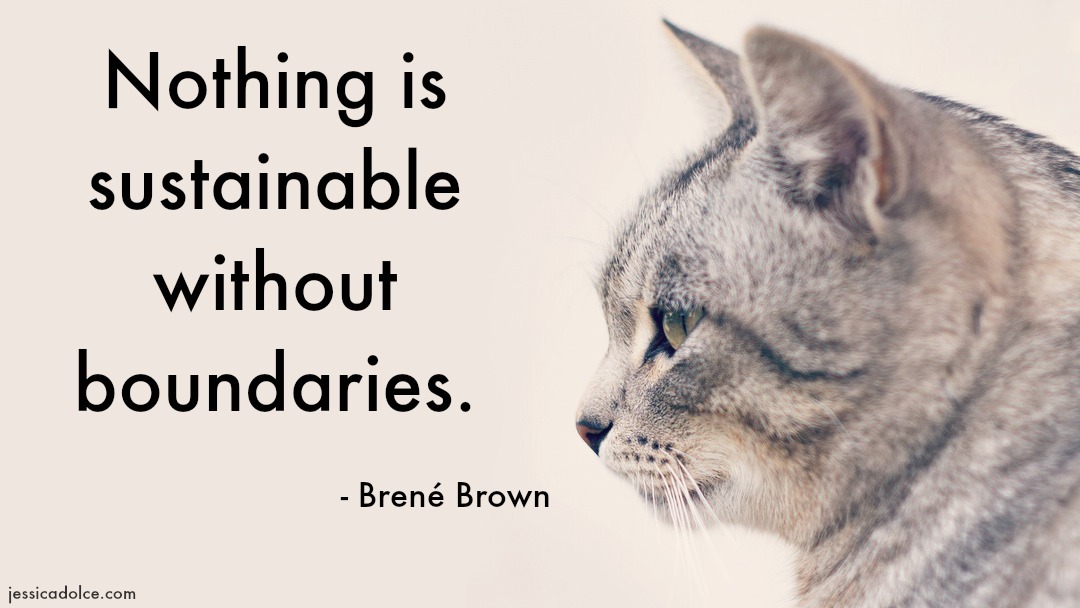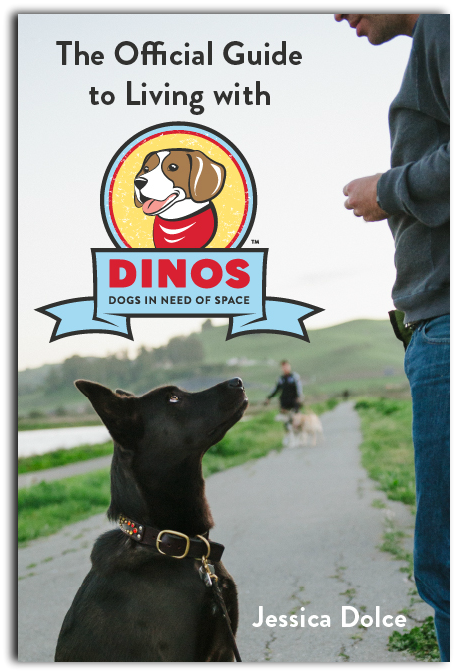When I found about the The Difficult Pet Support Group created by fellow dog walker and pet sitter, Rachel Bow of Ruff Mutts, I couldn’t wait to learn more about this Portland, OR resource.
As many of you have experienced, living with a pet who has behavioral or medical issues can be challenging, and is often exhausting and isolating. So I’m thrilled to see that pet owner support groups which focus on supporting families with “difficult” pets are becoming more widespread. I asked Rachel to tell me more about her group and here’s what she had to say:
Jessica: Can you start off by sharing a bit about the group?
Rachel: Sure! The Difficult Pet Support Group is a monthly peer-to-peer support group for people loving and living with a difficult pet in Portland, OR. Enid Traisman, the Director of the DoveLewis Pet Loss Support Group and who’s been working in the field for over 25 years, facilitates the group with me. We’re also very lucky to have DoveLewis donate space each month for us to run the group. Dr. Christopher Pachel of the Animal Behavior Clinic was kind enough to give us free support and advice as we were getting the group off the ground.
The group has a few goals. The first is to provide a safe, supportive space for people with difficult pets to vent and brainstorm about management techniques. The second is to make these people feel worthy of being a pet guardian. We’ve found just being around others who understand one’s plight is so helpful in not feeling alone and this makes people who fall in this demographic feel empowered in their relationship with their pet. All of this leads into our final goal, which is to strengthen the bond between people and their pets and therefore keep pets in their homes.
We talk a lot about what our pets actually need to be healthy and happy versus imposed beliefs. It’s important for good guardians to feel like they are good guardians. I loved reading Uba’s story. Uba’s guardian has such a healthy perspective on Uba’s needs and while their lifestyle might not be conventional, it sounds like they are both very happy living their way.
How did you get started?
The group was started just from seeing there was a need. Ruff Mutts provides pet care for difficult pets and I’ve run into many guardians along the way who I felt would benefit from a group like this. I ran the idea past Enid who is also a client of mine and we got the ball rolling.

Was there a special animal in your life – past or present – or a particular experience that inspired you to do this work?
I had a pit-mix named Bowie who was particularly difficult when I was in my 20s. Bowie inspired Ruff Mutts and Ruff Mutts work inspired the group. Once I saw there were many people going through all the turmoil and emotions I had, I knew that the group was needed.
I see a lot of parallels with your group and DINOS. For example, my intention with DINOS was never to be a dog training site, even though I sometimes share training resources. It’s always been about connecting people, so they feel less isolated, less frustrated, and more supported in what can be a really challenging experience.
I often write that our dogs want us to be happy, because happy people keep their pets. That’s the shelter worker in me talking! So I’d love to hear from you: Why is it important to have a place where the owner’s emotions are the main focus?
Yes! I see a lot of parallels between our ideas, too. I think guardians of difficult pets deserve a lot of support and praise for all the hard work, dedication, and compassion they exercise daily. There is a strange idea in the dog world right now that people with difficult dogs are absolutely-to-blame-no-matter-what for aggressive or bad behavior but often enough, that just isn’t the case.
Everyone who has ever attended one of our meetings has worked with a trainer and often more than one trainer. These are very responsible and dedicated guardians who are sticking with their crazy beast through thick and thin – an admiral quality that we should condone, not condemn. I, too, want to keep pets in their homes and my belief is that people who feel they’re capable of providing a good home for their pet will feel good about keeping their pet even if their lifestyle looks a little different than what we think of as a normal life for a dog. I also believe that pets are happier when they’re with happy people.
On another note, I don’t think there are enough resources out there for difficult dogs! The industry focuses so much on changing difficult dogs but what happens to these people and their pets if this isn’t possible?
I totally believe in training, don’t get me wrong, but at a point, we need to see dogs as individuals, accept them for their faults, and manage them in a way that still allows them to be healthy and happy.
Without compromising the confidentiality of the group, are you able to share any stories of how the group is having a positive affect on the pet owners who are attending?
It seems that people are getting a lot from having other understanding, non-judgmental people really listen to their stories. People go through a range of emotions while we’re in session. There are tears often followed by laughter. It’s a ride for sure and people appreciate not having to be on it alone.

Do you have any advice or tips for anyone that’s considered starting a similar support group in their area?
Yes! Reach out to others in the community who might know people who would benefit from a group like this, such as dog trainers, pet care providers, doggie daycares, and veterinarians to get the word out. If you’re providing a community service, people will want you to succeed. People can contact me directly for more information about getting a group going and I’m happy to help.
I’ve had the privilege of helping the awesome Kristin Buller get her group going in Chicago and Dr. Meredith Stepita of Veterinary Behavior Specialists get her group off the ground in the San Francisco bay area.
What one’s thing you wish every owner of a “difficult” pet knew?
I just wish that they knew in their heart that they are probably doing a great job! And if I could say one more thing about it, I’d say that they are definitely not alone.
So true. Thank you for the work you do and for talking with us Rachel!
Note from Jessica: Wishing there was more support in your area? I’ll continue to update the DINOS support group page, so if you know of a group that’s not listed there, please contact me.
I also offer an online course for DINOS families focusing on reducing caregiver stress and helping you see to your dogs in a whole new light. You can learn more here.
Want 1-on-1 support as you care for your dog? I offer coaching packages that you can check out here.























